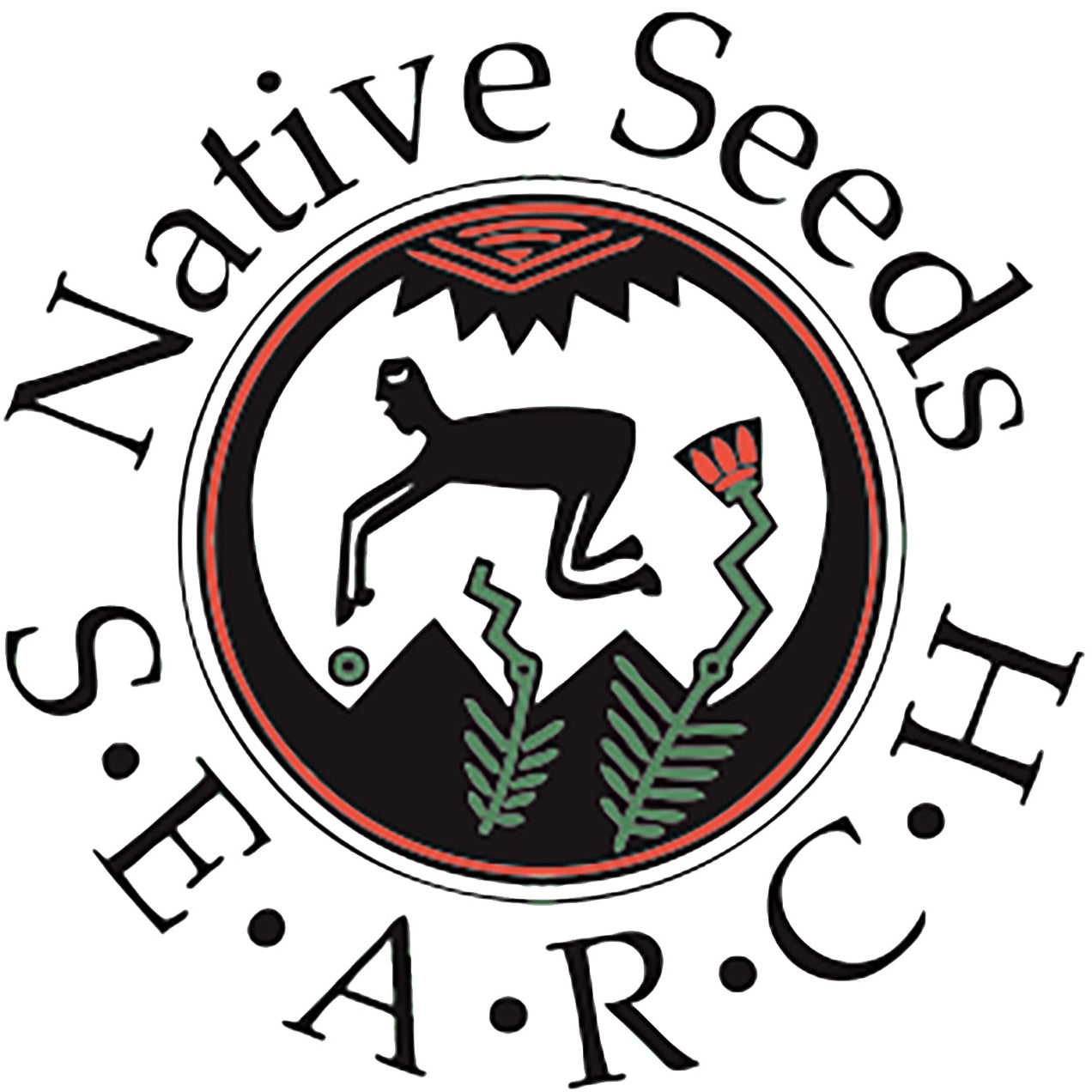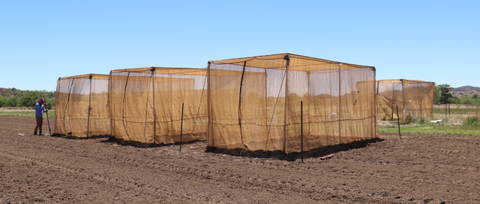
By Melissa Kruse-Peeples, Education Coordinator. Published May 31, 2017.
Activities are in full swing at the Conservation Farm this May. Cool season crops like peas, favas, and garlic are maturing in the field. Summer crops of corn, beans, and sunflowers have been planted in the fields. Chiles and tomato plants are increasing in size in the greenhouse and getting ready to transplant soon. Conservation Farm Intern Orion Yazzie-Nightwalker has started his 6-month training in seed conservation and has jumped right into the work.
The heart of NS/S is the seed bank, where thousands of priceless, traditional crop seed varieties are protected and conserved for current and future generations. We are all indebted to the farmers and gardeners who entrusted their heritage seeds to us for safekeeping. To make sure that we have viable seeds, we keep a close eye on the collection to determine which seeds need regeneration. We also know that ensuring the survival of seed diversity must include strategies for active conservation and use among farmers and gardeners. Therefore we also devote much of our growing capacity to seed increases to make seeds available through our various seed access programs. Growouts occur on our 60-acre Conservation Farm in Patagonia, Arizona. Located at an elevation of 4,000 feet among fertile river bottom soil, the farm provides an excellent location to grow the seeds that originate from across the southwest region.
 |
 |
 |
 |
Some of the crops growing at the Conservation Farm. Paiute Sweet Corn, field of favas and peas, Four Corner's Runner Beans & Purple Garlic.
This spring and summer growout plan includes around 50 accessions at the Conservation Farm. The Conservation Center in Tucson is also serving as a growout location of about a dozen different accessions that will fare better with the hotter temperatures and longer growing season. Growing seeds to maintain genetic purity requires techniques including hand pollination and isolation, which are often costly and labor intensive. Farm staff Morgan, Ben, and Orion keep a watchful eye on day to day activities and are periodically joined by staff and volunteers.
During a recent workday, NS/S staff based in Tucson helped the farm crew plant seeds for Paiute Sweet Corn, Hopi Purple String Beans, Havasupai Sunflowers, and Wild Scarlet Runner Beans. The wild runner bean is one of the 5 varieties highlighted in the 2017 Adopt-a-Crop campaign. Learn more about it and the other highlighted varieties and consider supporting our Conservation Farm season by making a donation today.
|
|
|
|
Planting corn and beans. Volunteers Bela and Oliver learned how to plant the seeds from Conservatio Farm Intern Orion.
The sunflowers and runner beans were planted in isolation tents. The tents allow for multiple varieties of the same species to be grown at the farm during the same season. They prevent pollinators from inadvertently transferring pollen between varieties maintaining genetic purity by avoiding undesired cross-pollination. The sunflowers and runner beans do require activity by pollinators to set abundant seed. Therefore, once they begin to flower the farm staff will open the isolation tents with runner beans on alternate days and take a brush around the flowering heads of the sunflowers each morning.
Isolation tents for crops like runner beans and sunflowers.
The farm has also received two new barn cats this season. Those who visited the farm last year during the Conservation Farm Field Day will remember the much loved barn cat Frijol. Thea and Sam will likely receive new names and are getting comfortable with their new surroundings. These cats play an important role in seed saving. They are mousers and will keep the rodent population down in the barn where seeds are dried and processed.
Cats arrive at their new home. Hope they are hunters.
If you are interested in seeing the activities at the Conservation Farm firsthand join us for the 20th Anniversary Celebration on June 24th. Beginning at 11 AM we will have a community potluck and tours of the farm. Attendees can enjoy the fields and participate in planting activities. All ages are welcome. Please RSVP with you name, contact information, and the number of people in your group to events@nativeseeds.org if you are able to join us.
If you are interested in volunteering your time at the farm, please visit our volunteer page for more information. Volunteers and staff travel from Tucson to the farm several times per month during the summer growing season.






